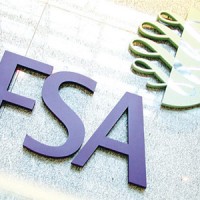
Mark Thorogood, owner of Property Park Mortgages, has been banned and fined £104,294, while Darren Button, formerly of the same firm, has been banned.
Daniel Djaba, trading as DPD Consultancy Services, and Adeolu Adeosun, a former adviser at the same firm, have also been banned, in addition to Waheed Hanif, a sole trader at The Broker Group.
The FSA found Thorogood had knowingly submitted fraudulent mortgage applications for himself and his wife, inflating his income from £22,950 to £120,000 and her income from £8,832 to £95,000. He also submitted two mortgage applications containing fraudulent information on behalf of a family member.
Thorogood failed to have a documented system for supervising the activities of advisors at the firm and kept poor records.
Button, a former adviser at the same firm, has been punished for deliberately entering false income and employment information in mortgage applications, which he then submitted to lenders, and attempting to conceal a customer’s true income on a payslip.
Meanwhile, Djaba has been banned from performing a significant influence function in regulated financial services for failing to adequately monitor one of his advisers and not ensuring DPD gathered robust documentary evidence to support income declared by customers.
Adeolu Adeosun, a former advisor at DPD, has also been prohibited for knowingly submitting fraudulent mortgage applications for himself and intentionally misleading the FSA during an interview.
A self-employed adviser who provided mortgage advice to DPD’s customers, he was not qualified to give advice and had not been assessed to be a competent advisor by the firm.
Waheed Hanif, a sole trader at The Broker Group, has been banned for acting dishonestly and lacking integrity while conducting mortgage mediation business.
In November 2009, Hanif was convicted by Stafford Crown Court on one count of obtaining a pecuniary advantage for another by deception and one count of obtaining a money transfer by deception.
He had submitted false information in his application for FSA authorisation and a false mortgage application to a lender in his own name.
The FSA’s interventions in these cases mean 101 intermediaries have now been banned since investigations started in mid-2005, of which 95 were prohibited for failings in relation to mortgage fraud.
In addition to the bans, fines amounting to £2.5 million have been imposed upon the individuals including one of £294,500 for a combination of mortgage and life insurance fraud.
Over the last four years the FSA’s Information from Lenders scheme has generated more than 1,000 alerts about mortgage intermediaries.
Margaret Cole, the FSA’s managing director of enforcement and financial crime, says: “Mortgage intermediaries must adhere to our rules to ensure that consumers are treated fairly and protected from excessive risk, and reduces the possibility that lenders are exposed to fraud.
“For those that don’t follow the rules the consequences are very serious. Not only might they receive a fine and a ban, but – by no longer being able to work in regulated services – they also face losing their livelihood.”















